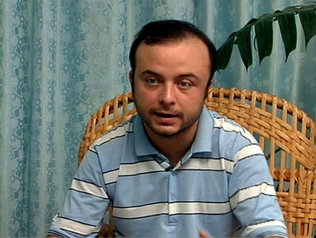
Spain says it’s satisfied with handling of Carromero case
The Spanish government has told critics that it is quite satisfied with its handling of the repatriation from Cuba of politician Ángel Carromero, sentenced in Havana for the death of two Cuban dissident leaders in July 2012.
The government’s response was reported Monday the 9th by the Spanish newspaper Diario Progresista.

It was a written reply to an inquiry from Irene Lozano, spokeswoman for the Spanish political party Unity, Progress and Democracy (UPD), who asked if the government planned “to promote an international investigation that might clarify the existing doubts about the death of Oswaldo Payá.”
Cuban dissidents Oswaldo Payá and Harold Cepero died on July 22, 2012, when the car in which they were traveling went off the road and crashed into a tree in Granma province. The car was driven by Carromero, a visiting Spanish functionary, member of the ruling Popular Party.
The “existing doubts” cited by Lozano refer to allegations that a Cuban government vehicle had pushed Carromero’s car off the road.
Carromero was tried in Havana, found guilty of involuntary manslaughter, and sentenced to four years in prison. Through an existing agreement between Spain and Cuba, he was repatriated in December 2012 and has been serving his sentence under supervised control.
“The application of the 1998 Bilateral Agreement for the Execution of Penal Sentences, an international treaty signed by Spain and Cuba that allowed the swift return of Mr. Carromero, presupposes, on the part of the Government of destination [Spain] the acceptance of the trial held in the Government of trial [Cuba],” the Spanish government replied to Lozano in a letter, according to Diario Progresista.
Wishing to avoid “the statements that were made later by different parties in connection with this matter,” the Spanish government letter insisted that the objective “shared by all” was to expedite Carromero’s return to Spain.
The repatriation “has been thanked publicly by the deportee himself [Carromero] on numerous occasions,” the letter went on.
The words “the statements that were made later” were an allusion to allegations that the Cuban prosecutors had forced Carromero to accept responsibility for the accident.
In answer to another Lozano question, about the lack of indemnification for Payá’s family, the government letter said that “the issue of indemnification was mentioned only as a common practice in cases of accidents with victims when the family of the victim asks for it, which was not the case here.”
Indeed, Payás family does not consider Carromero responsible for the fatal accident and did not ask the Spanish government for compensation.

